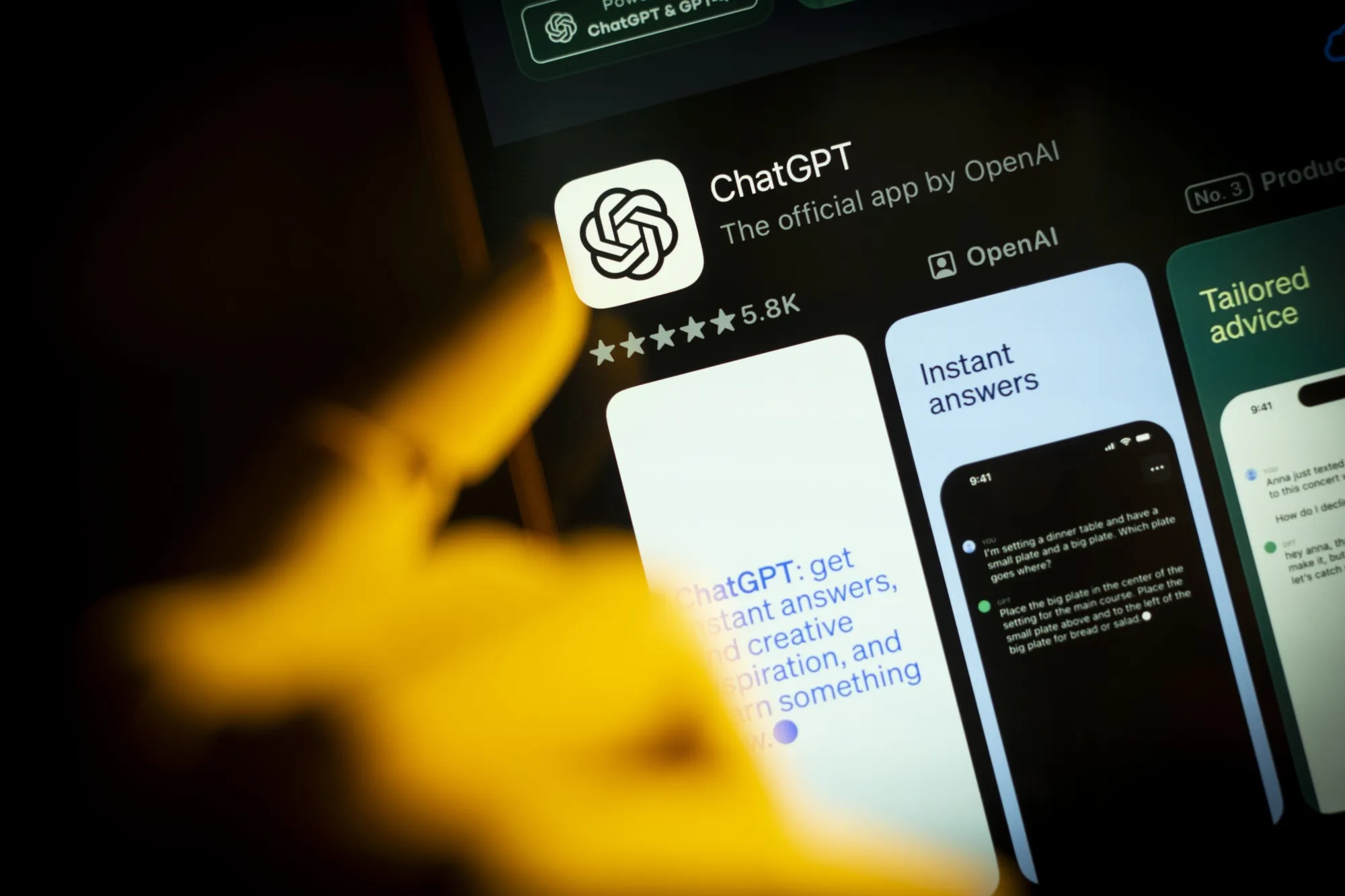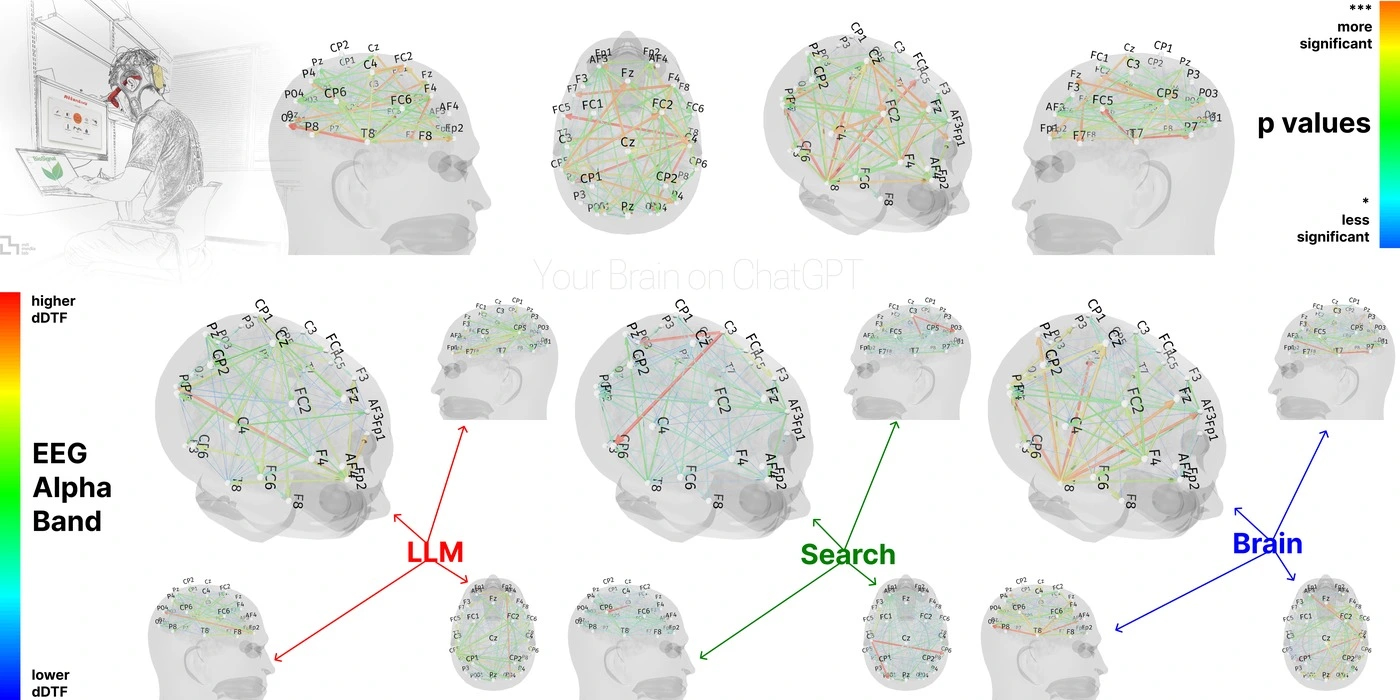Article
According to the Massachusetts Institute of Technology (MIT), AI tools such as ChatGPT are increasingly becoming an essential part of both work and learning. However, a new study based on electroencephalogram (EEG) measurements reveals that overreliance on AI may cause the brain to become “lazy,” weakening human abilities in reasoning, learning, and memory.To explore the “cognitive cost” of using large language models (LLMs), the research team conducted a special experiment. Participants were divided into three groups to complete the same essay-writing task.The first group was allowed to use ChatGPT for assistance, the second used Google to search for information, while the third had to write entirely on their own, without any external tools. During the process, the scientists monitored brain activity using EEG, recording neural changes and patterns in each participant.The findings led many to reconsider how they use technology.EEG data showed that the degree of connectivity between brain regions decreased in proportion to the level of reliance on external tools.


This suggests that when we let AI think for us, the brain begins to “delegate” cognitive effort to the machine — engaging less in the creative and reasoning process.Moreover, when asked to recall their essay just minutes after completing it, the ChatGPT group remembered significantly less than the other two groups. Many participants in this group also reported that their writing did not feel like it “belonged to them,” since most of the content had been shaped by the AI rather than their own thoughts.After four months of follow-up observations, researchers found that the ChatGPT group performed worse than the self-writing group across most cognitive measures — including neural activity, linguistic ability, teacher scoring, and even AI-based evaluation.The study concludes that while artificial intelligence offers undeniable benefits, overdependence can gradually erode critical thinking, creativity, and memory.
In other words, just like a muscle that weakens when unused, the brain loses strength when we hand over our thinking to machines for too long.The researchers emphasize that AI should be used as an intelligent assistant — a guide to spark ideas, orient thought, and save time — not as a replacement for our own minds.
Learning to use AI wisely, in a way that supports rather than replaces human cognition, is the key for both humanity and technology to grow together — without losing our most natural and irreplaceable mental abilities.


